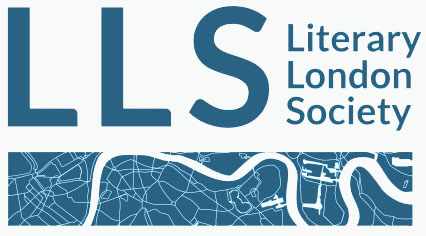Mary Yihuei Wang
National Taiwan Normal University
London, the setting for many works of literature, is known for its multi-faceted appearances. It can be the desolate place delineated in William Blake’s poem, London. It could leave us with an impression of crime and mystery, as in the Sherlock Holmes stories. London can be a vibrant city, saturated in the hustle and bustle of modern life, as Woolf vividly describes. It might be the imperialist center portrayed by Conrad in his disillusioning lament, Heart of Darkness; or else the bureaucratic, monolithic society in Orwell’s dystopian 1984. Over the course of time, London has been presented and represented by various distinguished writers in varied and ever-changing images – which epitomize not only darkness, but vigor and volatility. For many people, London is a combination of old and new, hope and despair, fantasy and anxiety. London is unique because of its synthesized characteristics – it brings mixed feelings for us, which hopefully chime with the theme of “Fantastic London: Dream, Speculation and Nightmare”, the title of the 2017 Literary London Society (LLS) annual conference.
From July 13-14 2017, I attended the LLS conference in London. Although I had been to academic conferences several times before, this was the first time I was accepted as a contributor, rather than just as a PhD student. I was excited, though a little bit nervous, to participate in this significant event, for which I travelled all the way from Taiwan – a 16-hour flight. During the two day conference, I joined various panels and discovered speakers from a variety of backgrounds. Some attendees studied literature, whilst other researchers came from a range of backgrounds, including theater, music and sociology. Their thought-provoking presentations engaged with a myriad of diverse approaches, while still paying respect to the “Fantastic London”. By the end of the conference, I felt I had got loads out of it – the innovative thinking and the creativity on show offered me various ways to envision possible new directions of academic research in the future.
Given that the conference focuses on, but is not strictly limited to literary texts in which “London” is being discussed, addressed, and alluded to, I could see distinctive theoretical approaches employed, particularly the interdisciplinary method. Within this approach, the boundaries between different subjects and theories are crossed over and the discussion is without limitation. Generally speaking, in this conference, I noticed that different illustrations and interpretations of the related ideas of “time and space” repeatedly occurred. Regarding time, London has been a meeting place for diverse historical, cultural, and individual temporalities, which are in the process of collision, negotiation, and integration. On the other hand, many speakers discussed London from the point of view of space, either geographically or symbolically. They probed into subtle relationships between London and other places, which led to further debates about the center versus the periphery, and the self against others. The conference encourages us to mediate on how London, as a primal city, exerts its influences on the pages of human history.
Being an attendee who comes from the opposite side of the globe, I consider this conference significant, as in many degrees it provides us with an international view in relation to various processes of globalization in our age. On the one hand, since the late nineteenth century, London has been a cosmopolitan city where different cultures have encountered each other. In this regard, discussing the issues related to London in the past enables us to think more deeply about the present in which we are living. On the other hand, the conference helps to inspire young scholars to consider how a city is thematically discussed with regard to literature, cinema, architecture and the visual arts. Certainly the conference creates a compelling vision of a multiplicity of possibilities, and it may help to stimulate participants’ research interests in other fields, apart from literature. I think the LLS annual event was a success – it opens up a window to look into the past, to think of the present, and survey the future.
